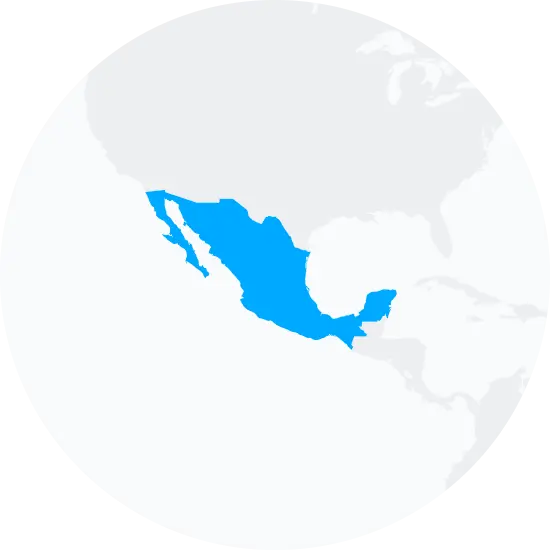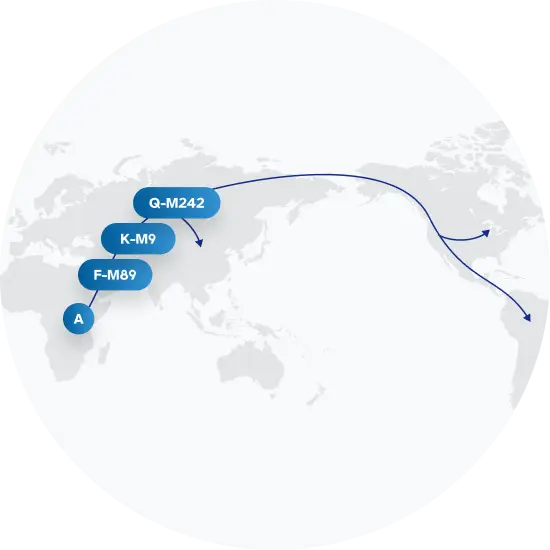Explore the Family Name Manzanares
How common is the last name Manzanares in the United States?
Based on data from the Decennial U.S. Census, the surname Manzanares increased in popularity between 2000 and 2010. In 2000, it was ranked as the 6032nd most common surname, but by 2010, it had climbed to the 4740th position, representing a change of 21.42%. This rise in popularity is also reflected in the count of individuals with this surname, which grew from 5,249 in 2000 to 7,480 in 2010, an increase of 42.5%. Furthermore, the proportion of people with the Manzanares last name per 100,000 residents expanded by 30.26% during this decade.
| 2000 | 2010 | Change | |
|---|---|---|---|
| Rank | #6,032 | #4,740 | 21.42% |
| Count | 5,249 | 7,480 | 42.5% |
| Proportion per 100k | 1.95 | 2.54 | 30.26% |
Race and Ethnicity of people with the last name Manzanares
In regard to the ethnic identity associated with the surname Manzanares, the Decennial U.S. Census data shows that the majority of individuals with this last name identified as Hispanic in both 2000 and 2010. The proportion of those identifying as Hispanic increased slightly from 87.60% to 88.84% over this period. While there were slight increases in individuals identifying as Black and American Indian and Alaskan Native, there were decreases among those identifying as Asian/Pacific Islander and White. Specifically, the percentage identifying as Asian/Pacific Islander declined by 19.05%, and those identifying as White fell by 10.54%. There was also a notable decrease of 34.33% in those identifying with two or more races.
| 2000 | 2010 | Change | |
|---|---|---|---|
| Hispanic | 87.6% | 88.84% | 1.42% |
| White | 10.15% | 9.08% | -10.54% |
| Asian/Pacific Islander | 0.84% | 0.68% | -19.05% |
| American Indian and Alaskan Native | 0.5% | 0.56% | 12% |
| Two or More Races | 0.67% | 0.44% | -34.33% |
| Black | 0.25% | 0.4% | 60% |
Manzanares ancestry composition
23andMe computes an ancestry breakdown for each customer. People may have ancestry from just one population or they may have ancestry from several populations. The most commonly-observed ancestry found in people with the surname Manzanares is Spanish & Portuguese, which comprises 35.9% of all ancestry found in people with the surname. The next two most common ancestries are Indigenous American (30.9%) and British & Irish (12.8%). Additional ancestries include French & German, Scandinavian, Italian, Eastern European, and Ashkenazi Jewish.
Ready to learn more about your ancestry? Get the most comprehensive ancestry breakdown on the market by taking our DNA test. Shop 23andMe
| ANCESTRY BREAKDOWN | COMPOSITION |
|---|---|
| Spanish & Portuguese | 35.9% |
| Indigenous American | 30.9% |
| British & Irish | 12.8% |
| Other | 20.4% |

Possible origins of the surname Manzanares
Your DNA provides clues about where your recent ancestors may have lived. Having many distant relatives in the same location suggests that you may all share common ancestry there. Locations with many distant relatives can also be places where people have migrated recently, such as large cities. If a large number of individuals who share your surname have distant relatives in a specific area, it could indicate a connection between your surname and that location, stemming from either recent ancestral ties or migration.
Based on 23andMe data, people with last name Manzanares have recent ancestry locations all within Mexico.
| RECENT ANCESTRY Location | Percentage |
|---|---|
| Aguascalientes, Mexico | 65.30% |
| Sonora, Mexico | 65.30% |
| San Luis Potosi, Mexico | 65.30% |
| State Of Mexico, Mexico | 65.30% |
| Nuevo Leon, Mexico | 65.30% |
What Manzanares haplogroups can tell you
Haplogroups are genetic population groups that share a common ancestor on either your paternal or maternal line. These paternal and maternal haplogroups shed light on your genetic ancestry and help tell the story of your family.
The top paternal haplogroup of people with the surname Manzanares is Q-M3, which is predominantly found among people with East Asian & Indigenous American ancestry. Haplogroup Q-M3 is descended from haplogroup Q-M242. Other common haplogroups include R-P312 and E-P147, which are predominantly found among people with European and European ancestry. Other surnames with similar common haplogroups are: Lucio, Armenta, Torrez, De La Rosa, Jimenez, Reyes, Vasquez, Hernandez, Pinzon, Aguilar.
The most common maternal haplogroups of people with Manzanares surname are: A2, H, B2. These most commonly trace back to individuals of European ancestry.
 Paternal Haplogroup Origins Q-M242
Paternal Haplogroup Origins Q-M242
Your paternal lineage may be linked to The Ancient One
When two college students stumbled upon a human skull on the banks of the Columbia River, neither the students nor the police who responded to their 911 call could have imagined the archaeological significance of this rare discovery. The skull — along with about 300 other bone fragments found near Kennewick, Washington — belonged to a 9,000 year-old nomad who Native Americans have dubbed "The Ancient One." Based on skeletal clues, The Ancient One (also known as "Kennewick Man") likely swam, wielded a spear, and hunted coastal fauna for the greater part of his lifeInitial craniometric studies suggested he descended from ancient Japanese and Polynesian-like people and had little in common with living Native Americans. This claim — refuted by the Plateau tribes of the Pacific Northwest — became the center of a decades-long legal battle over the provenance of the remains. When The Ancient One's genome was finally sequenced in 2015, the evidence revealed he was genetically most similar to modern-day Native Americans. In fact, local tribes were found to be direct descendants of a population closely related to The Ancient One; in 2017, he finally received a proper Native American burial. This critical discovery helps illustrate a genetic continuity between ancient and modern-day Native Americans. Furthermore, his paternal line belonged to haplogroup Q-M3, the predominant lineage among Native Americans today.
Your maternal lineage may be linked to some of the first Americans
Though the Ice Age was beginning to retreat when your A2 ancestors first entered North America, there were still massive barriers blocking their way. Glaciers and inhospitable climate covered much of the continent, blocking entry into the interior. Nonetheless, researchers have found evidence that a wave of American founders migrated over 13,000 kilometers to reach southern Chile in only 2,000 years, a blink of an eye in the story of human migration! Their highway to the south was the coast of the Pacific, stocked with fish, diverse marine mammals, and other valuable resources in the rich kelp forests of the upper latitudes and in the abundant fresh-water rivers near the equator. Because of this rapid movement south, the A2 haplogroup and its diverse branches are found throughout North and South America.

What do people with the surname Manzanares have in common?
Spoiler alert: it's complicated. People with the same last name are usually no more genetically similar than a randomly sampled group of people from the same population. That said, people with the same surname are more likely to have similar ancestries than randomly sampled individuals. The reason is the tendency of people with similar cultural or geographical backgrounds to preferentially mate with one another. That's why people who share a surname may be more likely to share traits and tendencies in common than people within the general population. Check out the percentages below to see the prevalences of tastes, habits, and traits of people with your surname compared with prevalences among 23andMe users.
Preferences
Traits
Habits
Wellness
Are health conditions linked to the last name Manzanares?
The short answer is that, if there is an association between surname and health, it's usually more about your ancestry than your name. Individuals with a given surname are no more genetically similar than the general population but often have similar ancestries. The populations of people associated with those shared ancestries often have sets of genetic variations, also known as alleles, in common. Some of those alleles are associated with a greater likelihood of developing certain diseases.
Disease variant frequency by ancestry
Disease allele frequencies in populations associated with the surname Manzanares are shown below. Important Note: not everyone with a disease allele will develop these health condition












